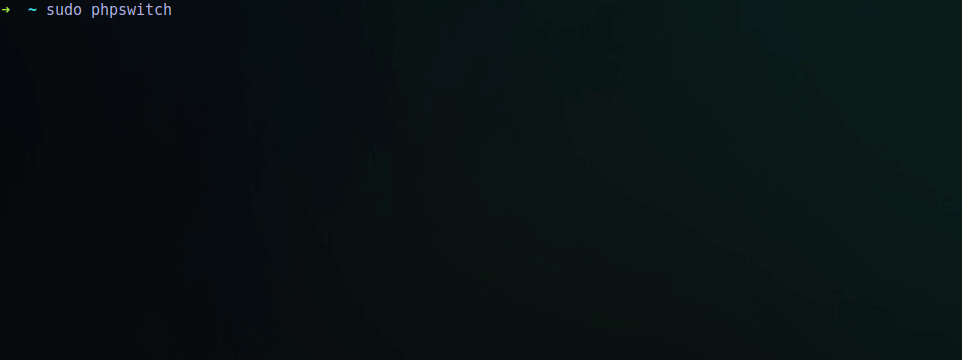
Installing PHP 7.3, 7.4, 8.0 on Ubuntu
PHP is one of the most widespread web programming languages on the Internet. There are currently three versions in active support, 7.1, 7.2, 7.3 and 7.4 which was released on November 28, 2019. It is advisable to always use the most stable version new, in this case it is 7.4, however, we can install any of these three versions on our system.
Updated with PHP 7.4 and 8.0
First we must activate the PPA (Personal Package Archive) para las versiones soportadas de PHP:
sudo apt install python-software-properties
sudo add-apt-repository ppa:ondrej/phpNow we have to update the list of available packages, to do this we just have to use the following command:
sudo apt updateNow that we have updated the package lists we can perform the installations:
PHP 7.1 EOL
sudo apt install php7.1 libapache2-mod-php7.1 libphp7.1-embed php7.1-{bcmath,bz2,cgi,cli,common,curl,dba,dev,enchant,fpm,gd,gmp,imap,interbase,intl,json,ldap,mbstring,mysql,odbc,opcache,pgsql,phpdbg,pspell,readline,recode,snmp,soap,sqlite3,sybase,tidy,xml,xmlrpc,xsl,zip}PHP 7.2 EOL
sudo apt install php7.2 libapache2-mod-php7.2 libphp7.2-embed php7.2-{bcmath,bz2,cgi,cli,common,curl,dba,dev,enchant,fpm,gd,gmp,imap,interbase,intl,json,ldap,mbstring,mysql,odbc,opcache,pgsql,phpdbg,pspell,readline,recode,snmp,soap,sqlite3,sybase,tidy,xml,xmlrpc,xsl,zip}PHP 7.3
sudo apt install php7.3 libapache2-mod-php7.3 libphp7.3-embed php7.3-{bcmath,bz2,cgi,cli,common,curl,dba,dev,enchant,fpm,gd,gmp,imap,interbase,intl,json,ldap,mbstring,mysql,odbc,opcache,pgsql,phpdbg,pspell,readline,recode,snmp,soap,sqlite3,sybase,tidy,xml,xmlrpc,xsl,zip} PHP 7.4
sudo apt install php7.4 libapache2-mod-php7.4 libphp7.4-embed php7.4-{bcmath,bz2,cgi,cli,common,curl,dba,dev,enchant,fpm,gd,gmp,imap,interbase,intl,json,ldap,mbstring,mysql,odbc,opcache,pgsql,phpdbg,pspell,readline,recode,snmp,soap,sqlite3,sybase,tidy,xml,xmlrpc,xsl,zip} PHP 8.0
sudo apt install php8.0 libapache2-mod-php8.0 libphp8.0-embed php8.0-{bcmath,bz2,cgi,cli,common,curl,dba,dev,enchant,fpm,gd,gmp,imap,interbase,intl,json,ldap,mbstring,mysql,odbc,opcache,pgsql,phpdbg,pspell,readline,recode,snmp,soap,sqlite3,sybase,tidy,xml,xmlrpc,xsl,zip} Once we have installed the versions we want, we can use them by directly executing the binaries:
php7.1 -v
PHP 7.1.25-1+ubuntu16.04.1+deb.sury.org+1 (cli) (built: Dec 7 2018 08:15:15) ( NTS )
Copyright (c) 1997-2018 The PHP Group
Zend Engine v3.1.0, Copyright (c) 1998-2018 Zend Technologies
with Zend OPcache v7.1.25-1+ubuntu16.04.1+deb.sury.org+1, Copyright (c) 1999-2018, by Zend Technologies
with Xdebug v2.6.1, Copyright (c) 2002-2018, by Derick Rethans
php7.2 -v
PHP 7.2.13-1+ubuntu16.04.1+deb.sury.org+1 (cli) (built: Dec 7 2018 08:07:08) ( NTS )
Copyright (c) 1997-2018 The PHP Group
Zend Engine v3.2.0, Copyright (c) 1998-2018 Zend Technologies
with Zend OPcache v7.2.13-1+ubuntu16.04.1+deb.sury.org+1, Copyright (c) 1999-2018, by Zend Technologies
with Xdebug v2.6.1, Copyright (c) 2002-2018, by Derick Rethans
php7.3 -v
PHP 7.3.0-2+ubuntu16.04.1+deb.sury.org+1 (cli) (built: Dec 17 2018 09:22:12) ( NTS )
Copyright (c) 1997-2018 The PHP Group
Zend Engine v3.3.0-dev, Copyright (c) 1998-2018 Zend Technologies
with Zend OPcache v7.3.0-2+ubuntu16.04.1+deb.sury.org+1, Copyright (c) 1999-2018, by Zend Technologies
with Xdebug v2.7.0beta1, Copyright (c) 2002-2018, by Derick Rethans
php7.4 -v
PHP 7.4.5 (cli) (built: Apr 19 2020 07:36:30) ( NTS )
Copyright (c) The PHP Group
Zend Engine v3.4.0, Copyright (c) Zend Technologies
with Zend OPcache v7.4.5, Copyright (c), by Zend Technologies
with Xdebug v2.9.3, Copyright (c) 2002-2020, by Derick RethansFinally we can use the update-alternatives command to set a given version as the default version:
sudo update-alternatives --set php /usr/bin/php7.2For our Apache to use a specific version of PHP we must activate the corresponding module and deactivate the ones we do not want:
sudo a2dismod php7.0
sudo a2dismod php7.1
sudo a2enmod php7.2You can also use this small script to quickly and easily change the PHP version, both from the command line and from Apache.
Source: phpswitch.sh

